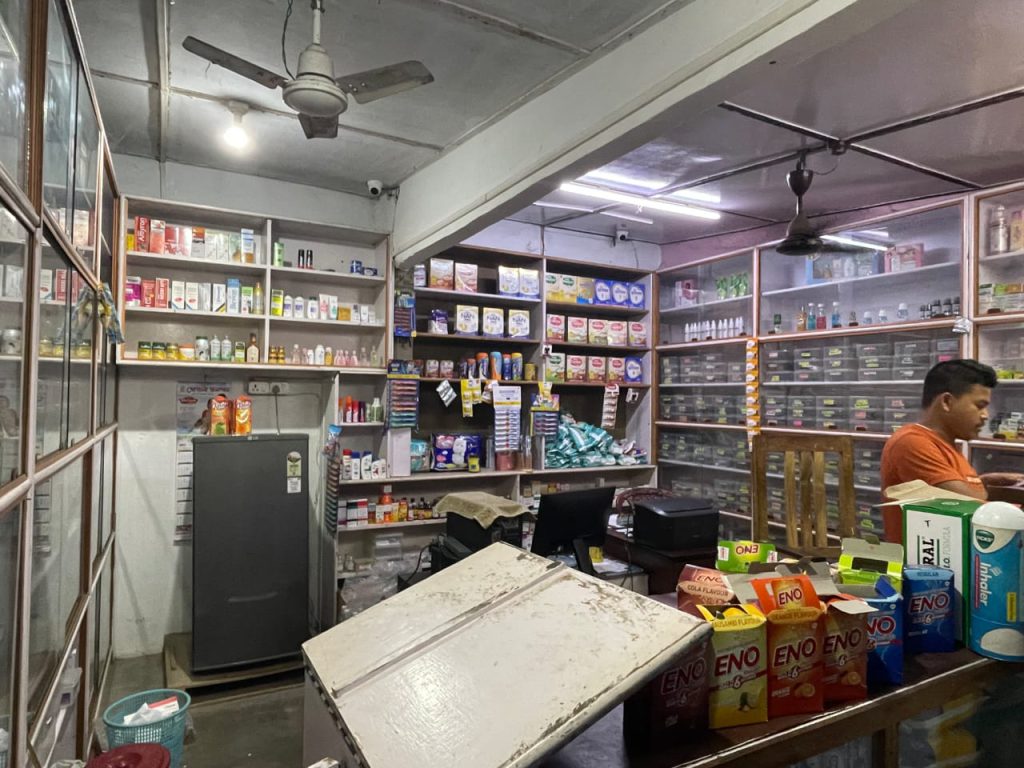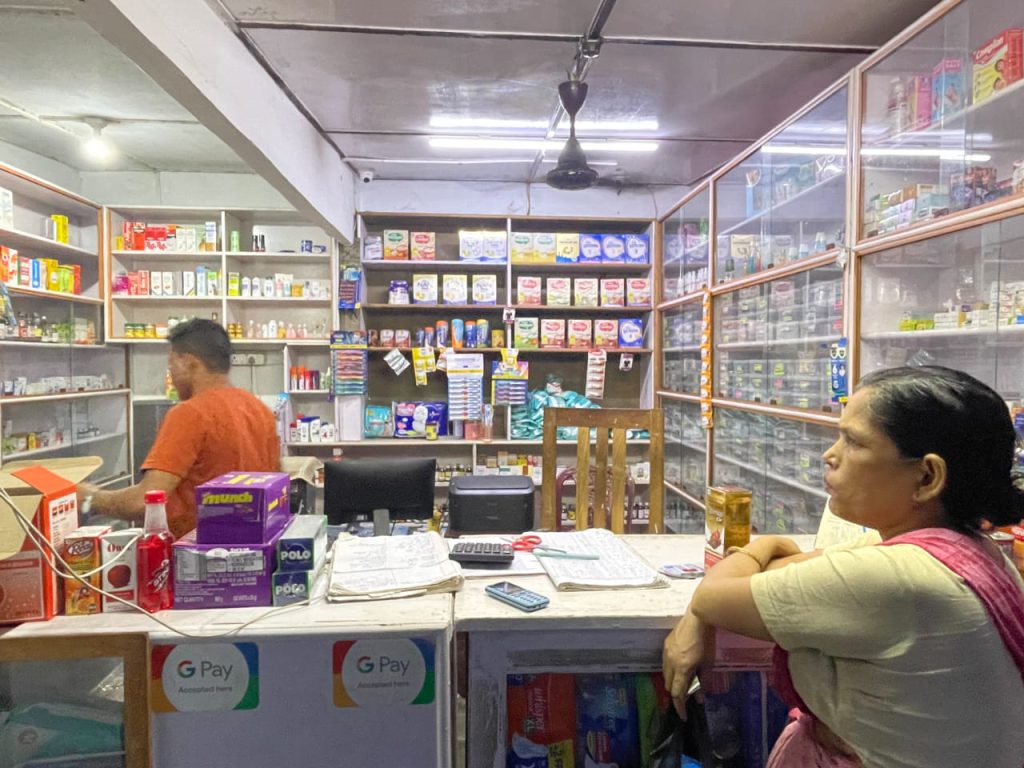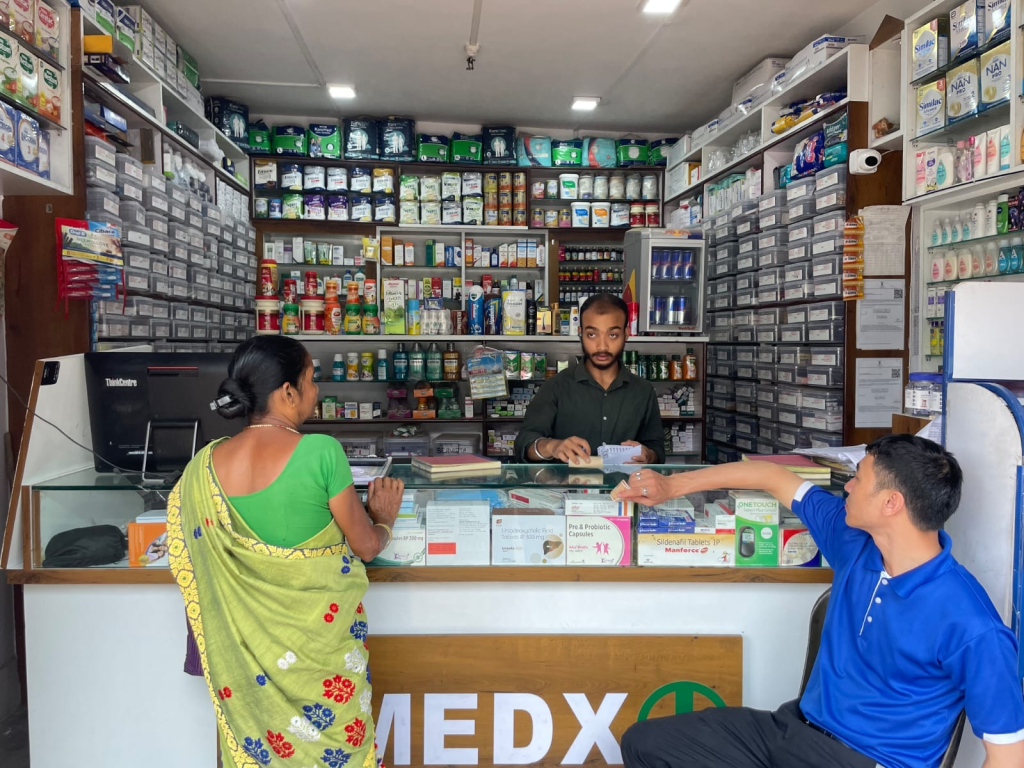Spread the love
Traditional pharmaceutical vendors, such as pharmacies, have allegedly suffered a 15% decline in the previous few years as a result of the surge in the selling of medicines via mobile-based applications. According to the Joint Action Forum of Pharmaceutical Organizations (JAFPO), online medicine sales have already captured approximately an Rs. 15,000 crore value market, accounting for 13-14 percent of the overall value-wise market share in comparison to the total Indian Pharma market of Rs. 1.5 lakh crores.
Traditional pharmaceutical vendors, such as pharmacies, have allegedly suffered a 15% decline in the previous few years as a result of the surge in the selling of medicines via mobile-based applications. According to the Joint Action Forum of Pharmaceutical Organizations (JAFPO), online medicine sales have already captured approximately an Rs. 15,000 crore value market, accounting for 13-14 percent of the overall value-wise market share in comparison to the total Indian Pharma market of Rs. 1.5 lakh crores.
"This is a clear indication that the Pharmaceutical business is rapidly migrating to the hands of the major corporations, as they claim easy and cheap availability of medicine at consumers' doorsteps," the JAFPO said in a recent statement.

The forum comprises the Chemists & Druggists Association of Assam (CDAA), the Centre of Medical and Sales Representative’s Union (North-East Region) (CRU-NER), and the Association of Advanced Pharmacy Practitioners (AAPP), and the Assam Pharmaceutical Association (APA). It had demanded the complete closure of online medicine and the rolling back of drug prices.
Members of the Forum stated that the online selling of pharmaceuticals is a clear violation of the Drugs and Cosmetics Act, 1940 and Rule, 1945, and referenced a December 2018 Delhi High Court judgment in which the judiciary directed the relevant government to ban the online sale of medicines. The Indian Medical Association (IMAWhite)'s Paper on Online Pharmacy, issued in 2022, also said that the sale of medications online is a blatant breach of regulations as well as the basic foundation of medical ethics and ethos.
According to the paper, "online pharmacies will encourage drug addiction, drug misuse, and self-medication." Any drug used without the supervision of a doctor can be harmful and even fatal."
"Furthermore, the online sale violates section 18(c) of the Medications and Cosmetics Act of 1940 and the Drugs and Cosmetics Rules of 1945, which ban the manufacturing and sale of certain drugs." The restricted medications designated as Schedule H and Schedule X are NOT ALLOWED TO BE SOLD ONLINE AT ALL. This is only possible with a valid prescription from a Registered Medical Practitioner and a separate registry for Schedule H1 medications, according to the forum.
IMA in its report has also mentioned breach of confidentiality as another major concern. According to IMA, online pharmacies may misuse personnel and financial information of the patient and of doctors leading to cases of identity theft and fraud.
According to clause 12.1 of Chapter 7 of the Pharmacy Practice Regulation of 2015, formulated under the Pharmacy Act of 1948, there is a strict prohibition of advertising of discounts or commission of any Pharmaceutical product. As such online platforms offering a discount on drugs to lure customers is a blatant violation of the law.

“The discount offered through advertisement in print and electronic media is as high as 30 percent, whereas the industry, by and large, gives a trade margin of 8 percent to stockists, and 18 percent to retailers,” said Dr. NL Agarwala, president of CDAA.
“As such questions arise on how online pharmaceutical applications are offering 30 percent discount against the trade margin of 26-28 percent,” he added.
The Forum said that with such economical statistics the online applications should openly show their source of procurement to the customers. “For in the run to lure a greater customer base with cheaper price tags, chances of such practices leading to the circulation of spurious and substandard medicines is very high. If so, it will cause a big challenge on healthcare,” it stated.

The Joint Action Forum of Pharmaceutical Organisations has alleged that there have been numerous cases of substandard and spurious medicines, and even adulterated drugs being in circulation across the country.
“Such cases have been reported from the offices of the Rajasthan Drug Controller, the Ranchi Drug Inspector, and recently from Nagaon district of Assam.
Netmeds, PharmEasy, Apollo, Marg, Reliance, Amazon, Flipkart, KEIMED LIMITED, Ankained, Esquare, EasySol, Uddan are reportedly the bulk buyers from pharma companies that are threatening the safe, effective and rational use of medicines.
“Such practices are also ending the existing distribution channel which employs large numbers of employees,” added the Joint Action Forum of Pharmaceutical Organisations.
The Forum has said that the existing supply chain is efficient and effective in delivering pharmaceutical products including life-saving medicines to every nook and corner of India that had proven itself even in the pandemic situation. It added that online sales, on the other hand, cannot reach the most backward places through the network/ courier system.
“The time-tested distribution network having more than 20 lakh retail pharmacies/chemists has been effectively fulfilling the needs of the people. The network can be further strengthened with some incentives and benefits from the government. However, online platforms are gradually threatening the very existence of this network and the numerous small businesses associated with it,” said Jitu Barman, General Secretary of CDAA.
Notably, all India organizations like IMA, Pharmacy Council of India (PCI), Confederation of Indian Trade (CAIT), All India Organisation of Chemists and Druggists (AIOCD), and the Federation of Medical and Sales Representative Association of India (FMRAI) have been demanding appropriate action to stop the multifarious adverse effects on healthcare and the pharmaceutical industries due to the malpractices of online platforms.
“We also appeal to the Central Government to reduce the prices of medicines, which is now going beyond the reach of the people. The government should reduce the prices at the MRP level; and roll back the recent hike by at least 10 percent on 800 medicines that are on the National List of Essential Medicines (NLEM),” said Jitu Barman, General Secretary of CDAA.
“Medicine is the vital component in providing proper healthcare, it needs a responsible approach to price issues from the National Pharmaceutical Pricing Authority (NPPA). There should be a restriction on the quantum of discount and rates should be decided at the national level to curb unfair trade practices,” he added.
The Forum urged that any benefit in the form of a discount should be available on a uniform basis to all stakeholders in general.
It added that the cost of medicines can be reduced if the Centre considers either reduction of the GST rate or its complete abolition like in the recent reduction of petrol and diesel prices.
“Self-reliant Bulk drug and Active Pharmaceutical Ingredient (API) production can help significantly in reducing the prices. This will then match the "ATMA NIRBHAR" objectives,” it stated.
APA, CDAA, CRU(NER), and AAPP appealed that customers should not fall into the trap of big online vendors selling substandard drugs, and urged awareness activities.